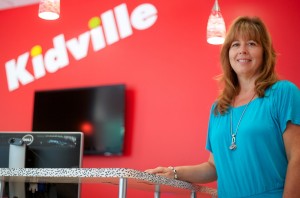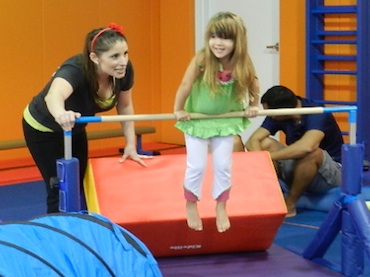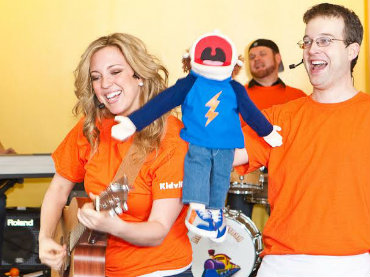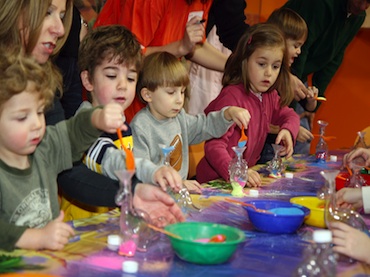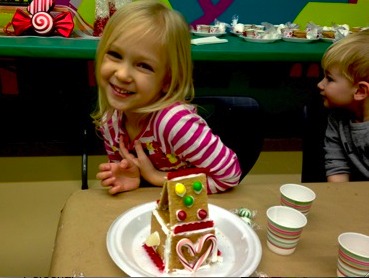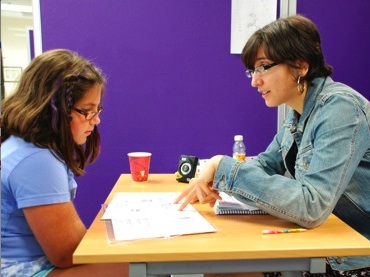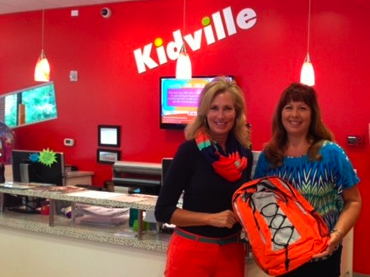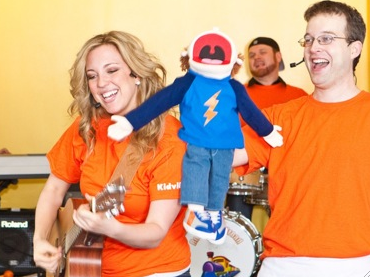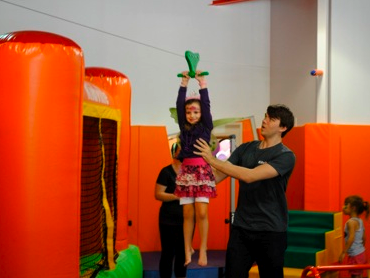- Sections :
- Crime & Public Safety
- Restaurants & Food
- Sports
- More
Categories
Preparing young children for starting school
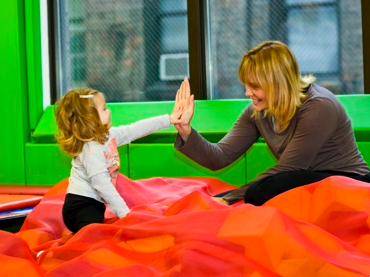
THE WOODLANDS, Texas – According to Texas Education Agency (TEA) enrollment reports, 390,619 kindergartners were enrolled in public schools statewide during the 2012-2013 school year. With a growth rate of approximately 80,000 children per year in each grade, kindergarten enrollment is forecast to reach nearly half a million in the 2013-2014 school year. For parents, sending a child off to school for the first time can be a bittersweet milestone; For young children, leaving the comforts of home to begin school can be a scary experience. As the statistics imply, these families are in good and plentiful company.
While conquering first day fears may seem overwhelming to children and parents alike, there are several ways to prepare for the beginning of this important educational journey. Karen Roberts, owner/operator of Kidville, an early-childhood development facility for families with young children, suggests starting preparations where the child feels most comfortable – at home with Mom and Dad.
“Pretend play is especially important in identifying fears you may not realize that your child has,” says Roberts. “These fears will come out as you role play and can then be addressed, before they reach the classroom.”
Roberts, who holds a Master's Degree in Education, adds that working on social skills in advance, giving the child some choices, and dealing appropriately with separation anxiety are also essential in helping boost your child’s confidence and self-esteem on the first day of school.
“For many incoming preschoolers or kindergartners, this is their first experience of being around a lot of other children, and learning to share can be extremely difficult.”
Planning play dates with other children or joining a class where your child can interact with others and take direction from other adults can help increase their social skills. Roberts also suggests giving the child some control by allowing them choices, like which outfit to wear or what to pack for lunch.
“As for separation anxiety,” she says, “most of the time it’s the parents who are more anxious than the child. The best thing you can do for your child is to be positive and reassure them that you will be back later to pick them up.” Using the same good-bye ritual every day, such as saying “After a while, Crocodile” or “Later Alligator,” can also help build consistency and expectation.
Other ways to prepare your children for school include:
Readying them for reading and writing. Creating art with Play-Doh, fingerpaints, crayons, etc., helps to develop fine motor and visual skills necessary for writing. Reading to your child every day helps them experience books, learn to sit still, and reinforce listening skills.
Focusing on following directions and listening. Help your child learn to follow directions by making it into a game and asking them to complete simple tasks and link several tasks together. Practice listening skills while at the park or in the backyard by having your child close their eyes and tell you what they hear.
Easing separation anxiety and first day concerns. Find some books that relate to starting school and read them together to open this line of dialogue. Among Roberts’ recommendations are "If You Take A Mouse To School", by Laura Numeroff, and "Wemberly Worried", by Kevin Henkins.
For more ideas on how to best prepare your little ones for starting school, Roberts recommends attending one of Kidville’s several weekly classes, aimed towards children newborn to age six. Options range from art, gym, music, and dance to an alternative preschool that teaches through play. Kidville also offers open gym time for members, a live band that performs for all ages, and their signature “Wiggles” classes that help youngsters learn to sit still, transition, and adapt to new routines.
For more information on Kidville, The Woodlands, please contact Karen Roberts at the link below.
While conquering first day fears may seem overwhelming to children and parents alike, there are several ways to prepare for the beginning of this important educational journey. Karen Roberts, owner/operator of Kidville, an early-childhood development facility for families with young children, suggests starting preparations where the child feels most comfortable – at home with Mom and Dad.
“Pretend play is especially important in identifying fears you may not realize that your child has,” says Roberts. “These fears will come out as you role play and can then be addressed, before they reach the classroom.”
Roberts, who holds a Master's Degree in Education, adds that working on social skills in advance, giving the child some choices, and dealing appropriately with separation anxiety are also essential in helping boost your child’s confidence and self-esteem on the first day of school.
“For many incoming preschoolers or kindergartners, this is their first experience of being around a lot of other children, and learning to share can be extremely difficult.”
Planning play dates with other children or joining a class where your child can interact with others and take direction from other adults can help increase their social skills. Roberts also suggests giving the child some control by allowing them choices, like which outfit to wear or what to pack for lunch.
“As for separation anxiety,” she says, “most of the time it’s the parents who are more anxious than the child. The best thing you can do for your child is to be positive and reassure them that you will be back later to pick them up.” Using the same good-bye ritual every day, such as saying “After a while, Crocodile” or “Later Alligator,” can also help build consistency and expectation.
Other ways to prepare your children for school include:
Readying them for reading and writing. Creating art with Play-Doh, fingerpaints, crayons, etc., helps to develop fine motor and visual skills necessary for writing. Reading to your child every day helps them experience books, learn to sit still, and reinforce listening skills.
Focusing on following directions and listening. Help your child learn to follow directions by making it into a game and asking them to complete simple tasks and link several tasks together. Practice listening skills while at the park or in the backyard by having your child close their eyes and tell you what they hear.
Easing separation anxiety and first day concerns. Find some books that relate to starting school and read them together to open this line of dialogue. Among Roberts’ recommendations are "If You Take A Mouse To School", by Laura Numeroff, and "Wemberly Worried", by Kevin Henkins.
For more ideas on how to best prepare your little ones for starting school, Roberts recommends attending one of Kidville’s several weekly classes, aimed towards children newborn to age six. Options range from art, gym, music, and dance to an alternative preschool that teaches through play. Kidville also offers open gym time for members, a live band that performs for all ages, and their signature “Wiggles” classes that help youngsters learn to sit still, transition, and adapt to new routines.
For more information on Kidville, The Woodlands, please contact Karen Roberts at the link below.
Comments •

